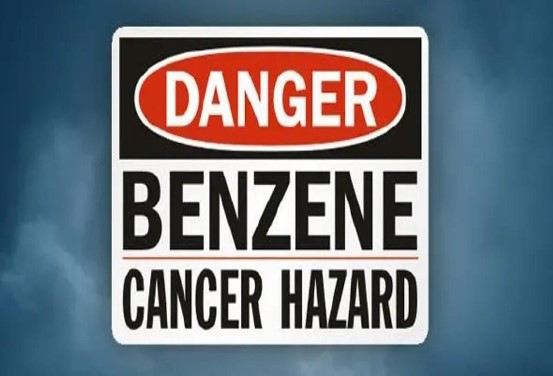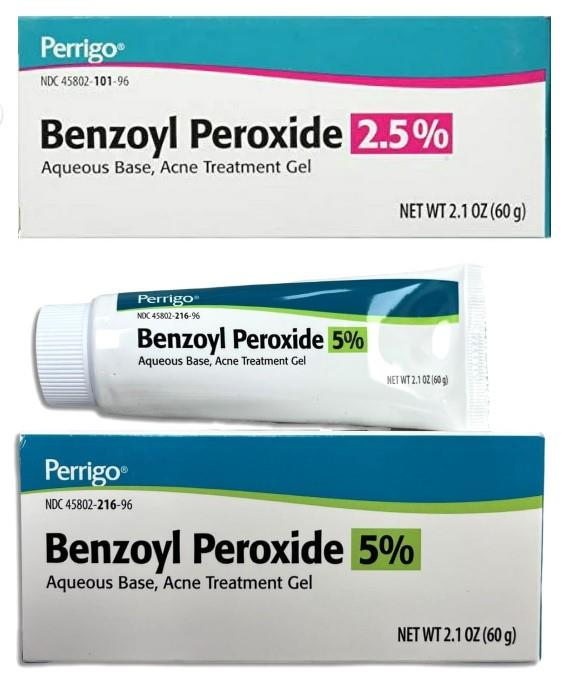March 12th, 2024

This past Tuesday, March 5th, Valisure LLC, an independent testing laboratory, filed a petition with the US Food and Drug Administration (FDA) It is important that you understand that if your using the following products, to discontinue use IMMEDIATELY until we have more information.
Proactiv 2.5% Benzoyl Peroxide Cream
Up & Up 2.5% Benzoyl Peroxide Cream (Target)
Walgreens 10% Benzoyl Peroxide Bar
Harris 10% Benzoyl Peroxide Wash
Clinique 2.5% Benzoyl Peroxide Cream
Clearasil 10% Benzoyl Peroxide Cream
LaRoche-Posay 5.5% Benzoyl Peroxide Cream
PanOxyl 10% Benzoyl Peroxide Cream
Sandra Lee MD 2.5% Benzoyl Peroxide Lotion
Oxy 10% Benzoyl Peroxide Cream
Galderma 5% Benzoyl Peroxide Cream
Equate 10% Benzoyl Peroxide Cream
Differin 5% Benzoyl Peroxide Cream
CeraVe 4% Benzoyl Peroxide Cream
Sandoz 5% Benzoyl Peroxide Gel
TARO 2.5% Benzoyl Peroxide Gel
Neutrogena 10% Benzoyl Peroxide Gel
So what is Benzoyl Peroxide (BPO)? Benzoyl Peroxide is an ingredient that has been used in skincare formulations for 5 decades. Benzoyl Peroxide is a topical ingredient that works to reduce oil, clear dead skin cells and eliminate the p. acnes bacteria (Propionibacterium acnes) that causes pimples, whiteheads and blackheads to form.

This ingredient has a high success rate of treating acne, acne lesions healing faster and speeding up cellular turnover. The problem with this ingredient is when the skincare product containing Benzoyl Peroxide is not stored correctly (example: stored in a hot vehicle for even small amounts of time, stored in a hot warehouse that was not temperature controlled) it speeds up the process of the ingredients breaking down and this leads to by-product ingredients.
Most skincare products have a shelf life of 12 months, however, Benzoyl peroxide has a shelf life of three months once opened. After that 3 month period, the ingredient breaks down and can even degrade other ingredients like antibiotics it may be paired with.
When this product breaks down, the by-product Benzene forms. Interestingly enough, the molecular structure of Benzoyl Peroxide’s (BPO) thermal decomposition is a hybrid system, meaning when broken down, Benzene vapor and non-condensable gas are formed during reaction.
The FDA agrees that as long as the Benzene is 2 parts per million in the skincare product, than that product is still safe for use.
It is very, very common for formulations of skincare, haircare and more to breakdown and by-products to form because of this. The by-products are not part nor added to the original product but form as the ingredients break down.
An example of this happening with another ingredient is ethylene oxide or ethylene glycol. These ingredients are popular in the ingredient decks of shampoos and certain pharmaceuticals. The problem arises when these products degrade and the by-product 1,4-Dioxane forms. 1,4-Dioxane is a harmful by-product that is a “potential human carcinogen” and is included in California’s State Proposition 65, listed as a chemical that may cause cancer or birth defects.
Last, year, Edgewell Personal Care modified it’s announcement to recall it’s Banana Boat Hair and Scalp Sunscreen Spray SPF 30 with three batches of additional sunscreen found to be contaminated with Benzene. This is the company’s second voluntary recall within the last two years but it is not from Benzene in the original ingredient deck formulation. The company only realized this was happening from the Benzene vapors that was detected as a result of the propellant spraying the product from it’s container.
So you can see, the age of the product and how the product is stored can all effect the amount of Benzene.
So What is Benzene? Benzene is a colorless, flammable liquid with a sweet odor. It is mainly used to make other chemicals, including plastics, resins, lubricants, rubbers, dyes, detergents, drugs and pesticides. In the past, it was also commonly used as an industrial solvent (a substance that can dissolve or extract other substances) and as a gasoline additive. In recent decades, the uses have been greatly reduced. People are exposed mainly by breathing air containing benzene, but it can also be absorbed through the skin.
Exposure to benzene has been linked with a higher risk of cancer, particularly Leukemia and other cancers of blood cells. Rates of Leukemia, particularly Acute Myeloid Leukemia (AML), have been found to be higher in studies of workers exposed to high levels of benzene, such as those in the chemical, shoemaking, and oil refining industries.
So remember when I mentioned earlier that we talked about the FDA ruling? The FDA agrees that any products that have 2 parts per million of Benzene in the skincare product is still safe to use.
This ruling by the FDA is still in effect. However, what Valisure Labs found was that when these popular skincare products were tested, they tested at incredible amounts higher (up to 12 times) than that allowed.
From its testing, Valisure found that Proactiv’s 2.5% BPO cream, manufactured by Taro Pharmaceuticals, contained 1761 parts per million of benzene. Target’s Up & Up 2.5% BPO cream had 1598 parts per million; Estee Lauder’s Clinique 2.5% BPO cream had 401 parts per million; Reckitt Benckiser Group’s Clearasil 10% BPO cream had 308 parts per million, and Walgreens 10% BPO cream had 114 parts per million, as some of the products with the highest parts per million.
David Light, Valisure’s co-founder and president released this statement:
“This discovery of BPO fundamental instability and benzene formation is substantially different from Valisure’s previous findings of benzene in sunscreens, hand sanitizers and other consumer products. The benzene we found in sunscreens and other consumer products was impurities from contaminated ingredients. However, the benzene in BPO products comes from the BPO itself, sometimes at hundreds of times the conditional FDA limit. This means the problem broadly affects BPO products and necessitates urgent action.”
What Actions Should I Take Next?
Check the opening date on your BPO product. Has this product been opened for more than 3 months? If so, throw your product out.
Discontinue use of product and contact the manufacturer immediately. Give the batch number (if possible) and ask it any quality control testing has been done concerning Benzene levels. Ask how your product is stored.
If you are unsure, or have trouble getting a definitive answer, discontinue use of product and find an alternative.

I sell in the spa boutique over-the-counter medical grade Benzoyl Peroxide Acne Treatment Gel that is branded by Perrigo (made in our state of Michigan) and owned by Padagis company.
I am currently in talks with Michael Platt of Padagis and have pulled all stock until I hear back from him. I will say this, my medical grade products are unlikely to sit in a hot warehouse like big box stores or Amazon but better to be safe than sorry.
When the products are cleared, they will be for sale again, and are $20.98 each.
What to Keep in Mind………
Valisure brings up valuable conversations on regulations needed for skincare products that contain Benzoyl Peroxide. As the FDA makes a decision, we need to remember what Valisure is asking the FDA for in the first place.
In addition to halting sales of BPO acne treatments, Valsure is asking the FDA to investigate the products, their manufacturing processes and submissions. When handled or stored by consumers at higher temperatures, BPO products may produce Benzene levels that are over the limit.
The company also demands the public be given access to product information and that the FDA develop guidance for analyzing benzene in BPO products.
In addition, it would like the FDA to revise “Q3C-Tables and List, Guidance for Industry” to include recommendations regarding the permissible benzene concentration for pharmaceutical products, like those containing BPO.
Valisure suggests the FDA work with the US Environmental Protection Agency (EPA) to address benzene contamination and cement thier partnership in future collaborations. It also wants the agency to support the rise of independent drug quility testing programs and “promulgate regulations requiring robust independent chemical testing and verification of pharmaceuticals.”
It may take some time for the FDA to investigate and come to a conclusion. For those of you whom this effects, please see a physician if you feel that this has effected, or may effect your health.
As soon as I hear back from Michael at Padagis, I will restock my Benzoyl Peroxide. If you have any questions, you can always call me at the spa at 248-686-1259 Tuesday-Saturday 10am-7pm or email the spa concierge at [email protected]
Warm Regards,
Sarah M Vail L.E.
